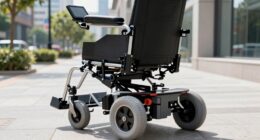Examining the intricacies of creating a nursing care plan for individuals with dementia underscores the importance of taking a comprehensive approach to meet the specific needs of those dealing with cognitive decline.
From comprehensive assessments to tailored interventions, the intricacies of dementia care planning demand a nuanced understanding of the disease and its impact on daily living.
By exploring the nuances of cognitive function enhancement, safety promotion, behavioral management, and effective communication strategies, we aim to provide a roadmap for optimizing care and support for those navigating the challenges of dementia.
Understanding Dementia Care Needs
In caring for individuals with dementia, we must comprehend their unique and complex needs, encompassing cognitive decline, memory loss, behavioral changes, and challenges in daily activities. Dementia is a progressive disease that interferes with daily functioning, making it essential for nursing care plans to address the specific symptoms and challenges each patient faces.
Understanding the cognitive decline experienced by dementia patients is crucial in providing appropriate care. Cognitive decline can manifest in various ways, such as memory loss, difficulty with problem-solving, and confusion. As nurses, our role in dementia care involves not only assessing these cognitive changes but also developing tailored interventions to support patients in managing their symptoms effectively.
Assessment and Diagnosis Process

Understanding the complexities of dementia care starts with a thorough assessment and diagnosis process that involves cognitive function tests such as the MMSE, MoCA, and ACE-R. These assessments help in evaluating the individual's cognitive abilities, memory, and problem-solving skills.
Additionally, the diagnosis of dementia requires the exclusion of reversible causes of cognitive impairment through various lab tests, including those for B12 levels, folic acid, and thyroid function. Brain imaging techniques like MRI and PET scans play a crucial role in identifying structural changes in the brain that may indicate the presence of dementia.
It's important to conduct a comprehensive evaluation to ensure an accurate diagnosis and appropriate care planning. While definitive diagnosis often requires autopsy findings, early assessment and diagnosis help in initiating timely interventions and support for individuals living with dementia. By conducting a thorough assessment and diagnosis process, healthcare providers can offer personalized care and support tailored to the individual's specific needs.
Setting Nursing Care Goals
With a focus on enhancing cognitive function and safety, our nursing care goals for dementia encompass a comprehensive approach to promoting patient independence and functional ability. Our primary objective is to create an environment that supports the patient's cognitive well-being while ensuring their safety from potential hazards associated with cognitive impairment.
By incorporating environmental modifications, such as clear signage and safety measures, we aim to minimize confusion and manifestations of dementia. Additionally, we prioritize the preservation of sensory and perceptual functions to enhance the patient's quality of life.
Communication techniques that are clear, simple, and supportive play a crucial role in achieving our goals, along with establishing routine scheduling for activities to provide structure and familiarity. Addressing anxiety through calming strategies and tailored interventions is also fundamental in our care plan, as we strive to promote a sense of security and comfort for individuals living with Alzheimer's and dementia.
Implementing Care Interventions

As we move forward in our nursing care plan for dementia, the implementation of tailored care interventions is essential in creating a safe and supportive environment for individuals with cognitive impairments. Structured routines for daily interventions are crucial in helping to maintain cognitive function and providing a sense of familiarity for dementia patients. Administering prescribed medications as outlined in the nursing care plan can effectively manage symptoms and improve the quality of life for individuals experiencing cognitive decline.
Monitoring and addressing behavioral symptoms are vital components of dementia care, as they impact the overall well-being and safety of patients. Additionally, providing social support networks and ensuring suitable living environments contribute significantly to enhancing the emotional well-being and quality of life for individuals living with dementia.
Evaluation and Documentation of Care
In dementia care, thorough evaluation and meticulous documentation play pivotal roles in monitoring progress and facilitating effective communication within the healthcare team. Evaluating patients with dementia involves comprehensive assessments using tools like the Montreal Cognitive Assessment (MoCA) or the Mini-Mental State Examination (MMSE). These assessments help in understanding cognitive abilities, memory, orientation, and functional status.
Documenting findings, care plans, responses to nursing interventions, and client outcomes is crucial for tracking progress and identifying trends in cognitive impairment. Detailed documentation supports decision-making, aids in evaluating the effectiveness of interventions, and ensures continuity of care.
Frequently Asked Questions
How Do You Write a Care Plan for Dementia Patients?
When writing a care plan for dementia patients, we focus on assessing cognitive function, safety risks, and daily living activities to tailor individualized care.
We include interventions for promoting cognitive stimulation, ensuring a safe environment, managing behavioral symptoms, and supporting family caregivers.
Setting realistic goals is crucial to maintaining functional abilities, minimizing confusion, enhancing communication, and improving quality of life.
Monitoring and evaluating the effectiveness of interventions, adjusting the care plan as needed, and providing ongoing support are essential.
What Is Nursing Care for Dementia?
When caring for individuals with dementia, we focus on assessing cognitive function, behavior, and safety to customize care plans. Our goal is to promote independence, manage symptoms, and create a safe environment.
We offer support, education, and assistance to patients and families. Effective communication, behavioral management, and cognitive enhancement are crucial.
Our aim is to maintain optimal function, safety, and quality of life for those affected by this neurological disorder.
What Is an Example of a Nursing Diagnosis for Dementia Patients?
When caring for dementia patients, we often identify nursing diagnoses to guide our interventions. An example is 'Risk for Falls' due to impaired balance. Another is 'Chronic Confusion' caused by memory deficits.
'Self-Care Deficit' is common as patients struggle with daily activities. 'Impaired Verbal Communication' may hinder expressing thoughts. 'Risk for Trauma' arises from impaired judgment.
These diagnoses help us tailor care plans to address specific needs and ensure patient safety and well-being.
What Are the Goals of Nursing for Dementia Patients?
When caring for dementia patients, our nursing goals center on enhancing their quality of life and promoting well-being.
We focus on maintaining mental and psychological function, supporting families in understanding and coping with challenges, ensuring functional ability through environmental adjustments, and prioritizing safety to prevent accidents.
Our tailored interventions aim to minimize confusion and cognitive impairments, fostering a fulfilling and safe environment for those we care for.
Conclusion
As we navigate the intricate web of dementia care, we strive to be the guiding light in the darkness, the comforting hand in times of confusion.
Our care plan is like a well-tailored suit, fitting each individual's unique needs with precision and care.
Through our dedication and expertise, we aim to create a safe harbor amidst the storm of dementia, offering support, understanding, and hope for a brighter tomorrow.









